What does “CHECK TUNER” mean on Kenwood Car Receiver?
- JJesse Barnes IIISep 14, 2025
Make sure the SiriusXM Connect Vehicle Tuner is connected to the unit.
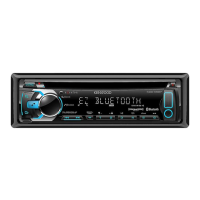
What does “CHECK TUNER” mean on Kenwood Car Receiver?
Make sure the SiriusXM Connect Vehicle Tuner is connected to the unit.
What does “NO SIGNAL” mean on Kenwood KDC-X597 Car Receiver?
Make sure the antenna is mounted outside the vehicle.
Why does the sound skip during Bluetooth playback on my Kenwood Car Receiver?
If the sound is being interrupted or skipped during playback of a Bluetooth audio player on your Kenwood Car Receiver, reduce the distance between the unit and the Bluetooth audio player. You can also try turning off, then turning on the unit and trying to connect again. Other Bluetooth devices might be trying to connect to the unit.
Why is the radio reception poor on my Kenwood Car Receiver?
If you are experiencing poor radio reception on your Kenwood Car Receiver, make sure the antenna is firmly connected.
Why is my Kenwood KDC-X597 Car Receiver not detecting Bluetooth devices?
If your Kenwood Car Receiver is not detecting any Bluetooth devices, try searching from the Bluetooth device again. If that doesn't work, reset the unit.
What to do if “PROTECT” appears on my Kenwood KDC-X597?
If “PROTECT” appears on your Kenwood Car Receiver and no operations can be done, it might be because the terminals of the speaker wires are not insulated properly. Check to be sure the terminals of the speaker wires are insulated properly, then reset the unit.
How to fix pairing issues with Kenwood Car Receiver?
If you are having trouble pairing your device with the Kenwood Car Receiver, make sure you have entered the same PIN code on both the unit and the Bluetooth device. If it still doesn’t work, delete pairing information from both the unit and the Bluetooth device, then perform pairing again.
What does “DEVICE FULL” mean on Kenwood KDC-X597?
If “DEVICE FULL” appears on your Kenwood Car Receiver, the number of registered devices has reached its limit. Retry after deleting an unnecessary device.
Why does my Kenwood KDC-X597 say 'PROTECT'?
The 'PROTECT' message on your Kenwood Car Receiver indicates that the terminals of the speaker wires may not be properly insulated. Ensure the speaker wire terminals are correctly insulated and then reset the unit. If the issue persists, further assistance may be needed.
Why is the sound interrupted on my Kenwood KDC-X597 Car Receiver via Bluetooth?
If the sound is being interrupted or skipped during playback from a Bluetooth audio player on your Kenwood Car Receiver, try the following: - Reduce the distance between the unit and the Bluetooth audio player. - Turn off and then turn on the unit, then try to connect again. - Be aware that other Bluetooth devices might be trying to connect to the unit.
| DIN Size | Single DIN |
|---|---|
| Channels | 4 |
| Built-in Amplifier | Yes |
| Tuner | AM/FM |
| Built-in Bluetooth | Yes |
| USB Port | Yes |
| AUX Input | Yes |
| CD Player | Yes |
| MP3 Playback | Yes |
| WMA Playback | Yes |
| AAC Playback | Yes |
| Display Type | LCD |
| Remote Control | Yes |
| Steering Wheel Control | Yes |
| High-Pass Filter | Yes |
| Low-Pass Filter | Yes |
| Subwoofer Level Control | Yes |
| iPod Compatibility | Yes |
| Satellite Radio Ready | Yes |
| HD Radio | No |
| Type | Car Receiver |
| Faceplate Security | Detachable |
| RMS Power Output | 22 watts |
| Peak Power Output | 50W x 4 |
| Preamp Voltage | 2V |
| Equalizer | 13-band |
Essential safety precautions for operating the unit and avoiding hazards while driving.
Guidelines for cleaning the unit, connectors, and proper handling of audio discs.
Overview of buttons and controls located on the front panel of the CD receiver.
Explanation of buttons and features available on the included remote control (RC-406).
Instructions for turning the unit on/off and adjusting the audio volume.
Guide on how to switch between different audio sources like Radio, CD, USB, iPod, AUX.
How to change or cycle through the information displayed on the unit's screen.
Steps to disable the 'DEMO OFF' mode for normal operation.
Procedure for setting the current time on the unit's display.
Configuration of core settings like Preset Type, Key Beep, Pandora, AUX, and more.
Methods for searching and storing radio stations using Seek Mode and Direct Access Tuning.
Adjusting settings such as Memory, Mono Set, PTY Search, and Time Sync for radio reception.
Instructions for initiating playback from CD, USB storage, or iPod/iPhone devices.
Managing playback: pause, resume, skip tracks, fast-forward, and rewind.
Selecting tracks, folders, and files from lists for USB and iPod sources.
Activating and deactivating repeat play and random shuffle for various media.
Methods for quickly finding specific songs or artists from connected media.
How the audio system mutes during incoming or ongoing phone calls.
Connecting and configuring an external portable audio player via the AUX input.
Renaming the AUX source for easier identification in the source list.
Connecting your device and starting music playback through the Pandora application.
Creating, saving, and searching for registered Pandora radio stations.
Steps for connecting the optional SiriusXM Connect Vehicle Tuner and activating subscription.
How to tune into channels, select categories, and manually search for content.
Managing channels with lock/unlock, direct access tuning, and replay buffer functionality.
Configuring channel lock, PIN codes, mature channel settings, and signal status.
Connecting the external microphone and understanding supported Bluetooth profiles.
Step-by-step guide to pair a Bluetooth-enabled phone or audio device with the unit.
Procedure to check the connectivity and compatibility of paired Bluetooth devices.
Managing incoming and outgoing calls, switching modes, and adjusting call volume.
Accessing contacts, call history, and dialing numbers via Bluetooth.
Settings for pairing, selecting, deleting, and auto-connecting Bluetooth devices.
Efficiently searching your phone's contact list by name using alphabetical order.
Using voice commands for calls and storing contacts for quick dialing.
Controlling music playback from a connected Bluetooth audio device.
Listening to Pandora music from your smartphone through the unit's Bluetooth connection.
Configuring preset EQs, bass boost, loudness, balance, and fader settings.
Adjusting subwoofer output level, HPF, LPF, and phase settings.
Setting volume offsets for sources and enabling Supreme sound enhancement.
Accessing advanced EQ Pro settings specific to certain models like KDC-X597.
Customizing screen brightness, scrolling text, and key illumination colors.
Understanding indicators for Bluetooth connection, audio status, battery level, and signal strength.
Details on playable discs, files, USB device requirements, and unplayable media.
Information regarding compatibility with iPod/iPhone, Bluetooth devices, and software.
Information on PC and Android applications for managing music libraries.
Resolving issues related to no sound, protect mode, power not turning on, or incorrect display.
Addressing general unit malfunctions, file errors, disc errors, and USB/iPod related issues.
Solutions for poor radio reception and static noise during radio playback.
Resolving errors related to Pandora application and SiriusXM™ subscription or connection.
Troubleshooting Bluetooth pairing, device detection, sound quality, and call issues.
Detailed technical data for FM/AM tuner sensitivity, frequency response, and CD playback.
Technical details for USB standard, file systems, and Bluetooth version and profiles.
Data on audio output power, impedance, input voltage, operating voltage, and dimensions.
Step-by-step guide for installing the unit into a vehicle dashboard.
Instructions for installing the unit without a mounting sleeve and removing the unit.
Fundamental procedures for safely connecting the unit, including battery disconnection.
Visual guide illustrating all necessary wire connections for the unit.
Inventory of all components included in the installation kit.
Notices regarding FCC and Industry Canada regulations for radio frequency devices.
Guidelines on radiation exposure limits and safe installation practices.
Listing of registered trademarks and licensing information for supported technologies.
Specific warranty conditions applicable to products purchased through U.S. military exchanges.
Details on the warranty card, required proof of purchase, and customer responsibilities.
Warranty terms specific to USA, Canada, and Brazil, including service locations.
Conditions not covered by warranty, such as misuse, accidents, and unauthorized repairs.
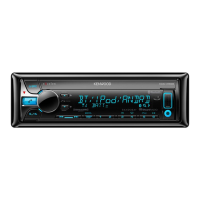
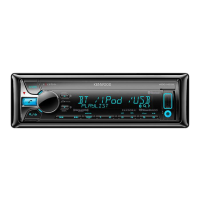
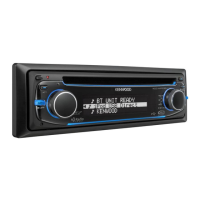



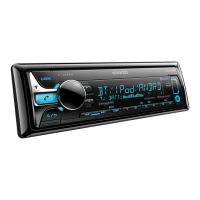

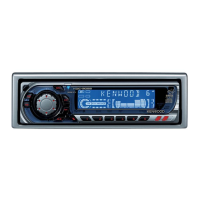
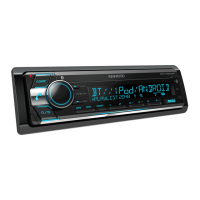
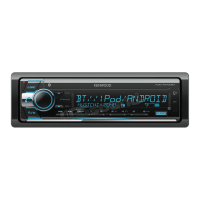
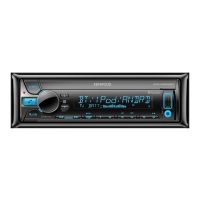
